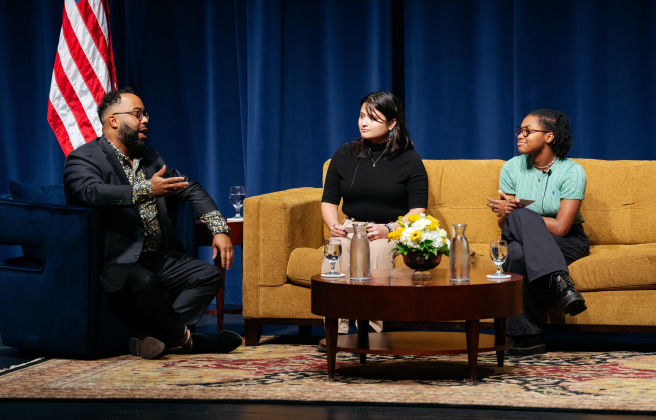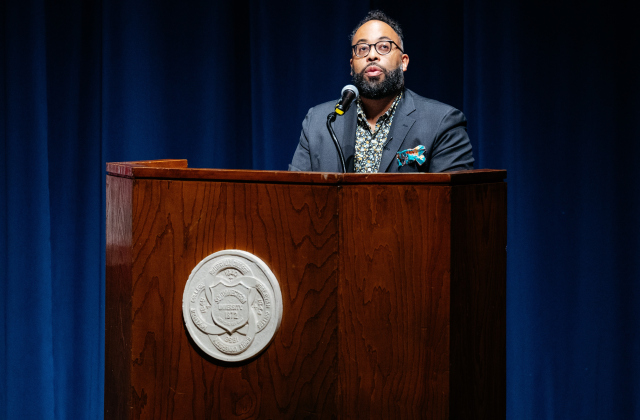“What interests me is how poetry can provide a witness to history,” Kevin Young said before his Roy and Margaret Shilling Lecture at Southwestern University Friday, October 13.
Mr. Young is the poetry editor at The New Yorker and spoke to students, faculty, alumni and other community members. During his lecture “The History of Poetry & The Poetry of History,” he read some of his own work, and also talked about his first editorial job: scouring the archive of Thomas Wolfe to compile a book of Mr. Wolfe’s work that was published posthumously.
“Poetry is both timely and timeless — or at least it seeks to be,” Mr. Young said.
He said he has found punctuality to be significant in his editor position at The New Yorker, specifically when it comes to a poem related to current events, like the work by Terrance Hayes titled “George Floyd.”
“Running that just a few weeks after [the death of George Floyd] was really important,” he said. “I think because we’re in a moment where poetry really speaks to people. It really speaks to our current moment.
“People are really looking for understanding. [...] To understand history, you do have to understand culture. Just thinking about Black history— it would be strange to talk about it without understanding the blues or jazz or what the blues tells us about history. What it testifies to. That’s what interests me.”
Mr. Young pointed to the famous quote “Tell all truth but tell it slant.” Poetry has to get at some sort of truth to resonate with readers, he said. Personal stories also help people understand history.
“I think in our particular time, when we are in the soup of everyday life — we don’t get to step back and see the broader point or story or feeling or perspective,” he said. “I see that perspective as all the more important. I see this as especially true when it comes to Black history, which teaches us about each other and ourselves. This only makes understanding the world, our nation, our community stronger. I think that it’s really important to not see these things as so far apart but really seeing them as getting at the truth.”
In Mr. Young’s most recent book, Stones: Poems, he revisits Louisiana, where his family is from. He said it was an important book for him because in it he talks about the land his family has been on for two centuries.
“To understand myself I have to understand that place,” he said. “Most of my family is buried in these two cemeteries, these two plots of land. So when visiting my family in Louisiana who still live on the land— I’m also visiting my ancestry. When I’m there, I’m really present.”
Mr. Young has written 15 books of poetry and prose. He currently serves as the Director of the Smithsonian’s National Museum of African American History and Culture.
“I’ve actually heard quite a bit about Southwestern [University],” Mr. Young said. “I was very interested in coming here specifically, just knowing that it is the first university in Texas.”
After Mr. Young’s lecture, there was a Q&A panel led by Natalie Gonzales and Mckenzie Rentie. The students asked Mr. Young poignant questions that specifically referenced his prior work. Many Southwestern English Majors attended the event armed with Mr. Young’s book, Stones: Poems, which had been gifted to them.



